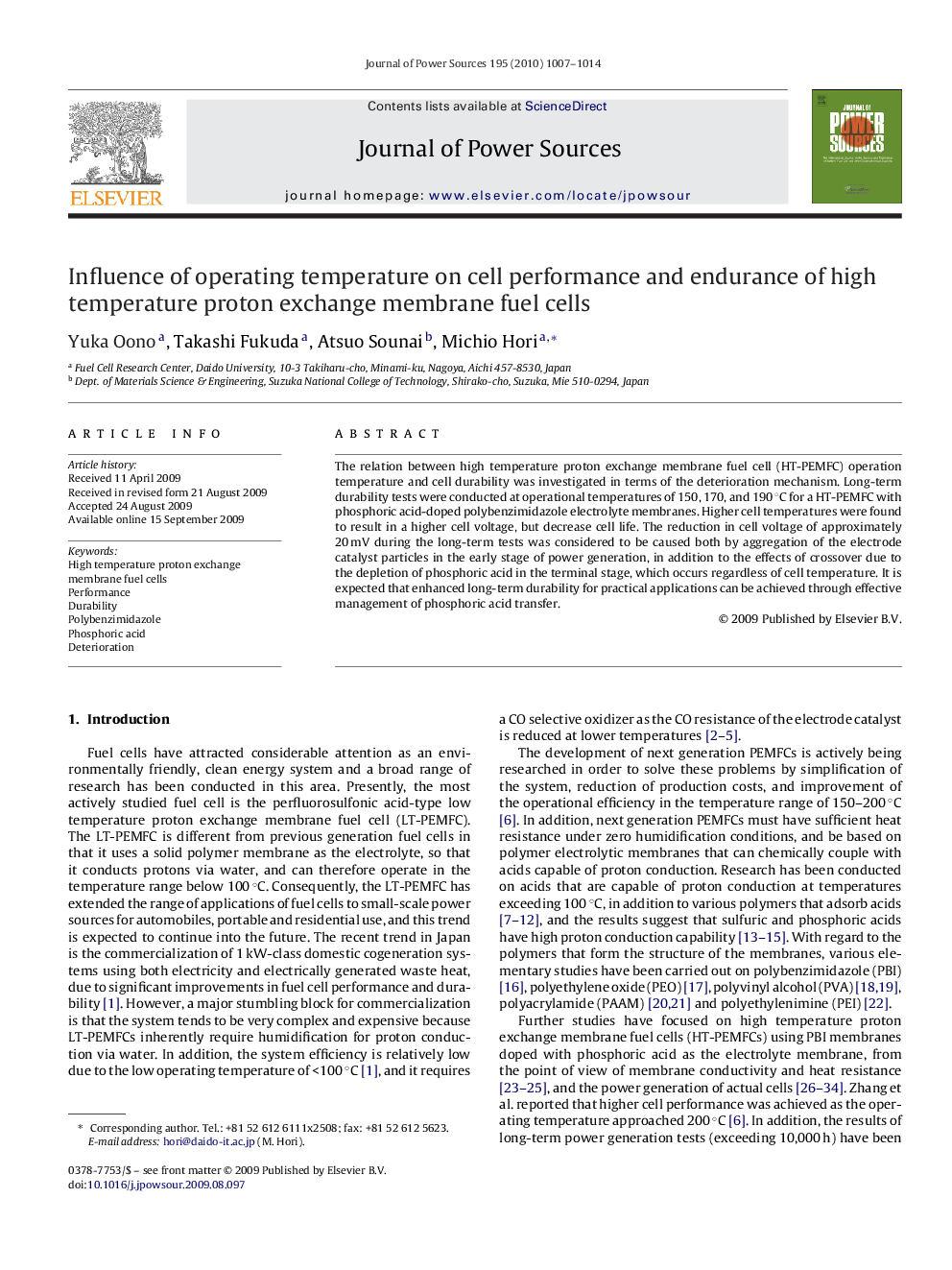| Article ID | Journal | Published Year | Pages | File Type |
|---|---|---|---|---|
| 1285089 | Journal of Power Sources | 2010 | 8 Pages |
The relation between high temperature proton exchange membrane fuel cell (HT-PEMFC) operation temperature and cell durability was investigated in terms of the deterioration mechanism. Long-term durability tests were conducted at operational temperatures of 150, 170, and 190 °C for a HT-PEMFC with phosphoric acid-doped polybenzimidazole electrolyte membranes. Higher cell temperatures were found to result in a higher cell voltage, but decrease cell life. The reduction in cell voltage of approximately 20 mV during the long-term tests was considered to be caused both by aggregation of the electrode catalyst particles in the early stage of power generation, in addition to the effects of crossover due to the depletion of phosphoric acid in the terminal stage, which occurs regardless of cell temperature. It is expected that enhanced long-term durability for practical applications can be achieved through effective management of phosphoric acid transfer.
